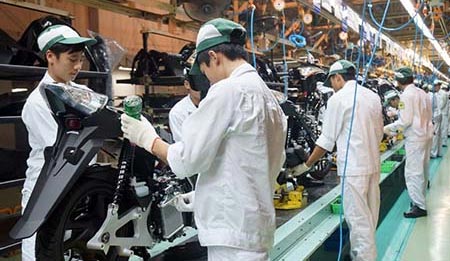Asian retail investor sentiment rocked by central bank policy, oil prices: Manulife

illustration photo
Overall, the regional sentiment was down two points to 26, dragged further by Indonesia whose sentiment dropped 14 points to 50, Malaysia which fell 8 points to 47, and Hong Kong which declined 5 points to -10.
“Retail investor sentiment is readily affected by factors that hurt their pocket and that impact the employment and economic outlook. Investors in Indonesia were spooked by the lifting of the fuel price subsidy and associated inflation pressures, and Malaysia, being a net oil exporter, was hit by the collapse in oil prices. We expect oil to sink below $40 a barrel and to stay low for about six months and this will continue to be a headwind for Malaysia’s economy,” said Manulife Asset Management chief economist Megan Greene.
Hong Kong sank further on investors’ gloomy opinion of the real estate market, with investment property falling a further nine points to -36, due to high property prices and the prospect of interest rate increases given the dollar peg.
“Vietnamese equities were dragged down by falling oil prices in the fourth quarter of 2014, likely causing some investor wariness about the asset class” said Trinh Nguyen, general director of Manulife Asset Management (Vietnam). “However, with interest rates remaining low and stronger GDP growth and relatively stable Vietnamese dong, we see the potential for improving earnings growth in 2015. Against this backdrop, an equity market mutual fund with exposure to carefully selected companies has the potential to deliver attractive returns.”
The index declines were offset by a jump in Mainland China, where delighted investors pushed the local index up 14 points to 29. The surge was driven by confidence in equity markets, with sentiment climbing 29 points to 58; reflecting retail investor confidence due to lower interest rates, the strong lending environment and further liberalisation of capital markets.
Japan was another riser, with sentiment up four points to 12, driven by the government’s stimulus spending and its prime minister election triumph which renewed his mandate for structural reform.
“In 2015, big macro-economic events will continue to loom large in markets. China will continue to benefit from targeted monetary and fiscal stimulus, but will see its growth decelerate moderately to around 7 per cent in 2015. When it comes to Japan we see very sluggish growth. The weaker yen has failed to boost exports due to competitiveness problems, so the outlook really hinges on deep structural reform,” said Green.
Retail investors across Asia are expecting on average, to achieve returns of 10 per cent in 2015. At the low end of the range is Japan with hopes of 7.4 per cent, while Indonesia sits at the top at 14.5 per cent. Investors in Mainland China sit near the middle, expecting 11.4 per cent, a mere fraction of the year-end 37 per cent spike in the Shanghai Composite Index.
What the stars mean:
★ Poor ★ ★ Promising ★★★ Good ★★★★ Very good ★★★★★ Exceptional
Latest News
More News
- MAE names big 10 policy wins in 2025 (February 06, 2026 | 08:00)
- US firms deepen energy engagement with Vietnam (February 05, 2026 | 17:23)
- Vietnam records solid FDI performance in January (February 05, 2026 | 17:11)
- Site clearance work launched for Dung Quat refinery upgrade (February 04, 2026 | 18:06)
- Masan High-Tech Materials reports profit: a view from Nui Phao mine (February 04, 2026 | 16:13)
- Hermes joins Long Thanh cargo terminal development (February 04, 2026 | 15:59)
- SCG enhances production and distribution in Vietnam (February 04, 2026 | 08:00)
- UNIVACCO strengthens Asia expansion with Vietnam facility (February 03, 2026 | 08:00)
- Cai Mep Ha Port project wins approval with $1.95bn investment (February 02, 2026 | 16:17)
- Repositioning Vietnam in Asia’s manufacturing race (February 02, 2026 | 16:00)
















 Mobile Version
Mobile Version